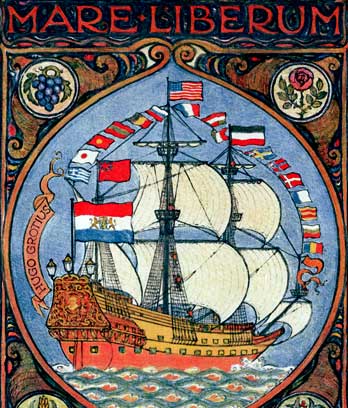Story summary
Conflict on the ocean
Several hundred years ago, countries such as England, the Netherlands, Portugal and Spain sent ships around the globe to explore or to trade, and built up powerful navies. There were no rules about who owned different parts of the ocean, and many battles were fought at sea, to win control.
The freedom of the seas
In the 1600s people began to believe that no nation should own a piece of the sea. All countries should be able to sail freely to other lands, and take marine resources such as fish and whales. This idea was known as ‘the freedom of the seas’. It became the rule around the world, and lasted for centuries. Any country could use any part of the ocean for travel, for fishing, or for trading.
New Zealand: an isolated country
For many years New Zealand favoured the freedom of the seas. Because ships had to cross thousands of miles of dangerous ocean to reach New Zealand, it was important that no rules stop ships carrying goods and passengers in open waters.
Changing attitudes
By the late 1950s some coastal countries had changed their views. They wanted to protect the oceans surrounding them. Ships from powerful nations could threaten their safety, or take fish and other important resources.
The United Nations
The United Nations held conferences to sort out these problems. Many countries met to discuss ways to protect their ocean regions.
In 1974 New Zealand and Pacific Island countries joined other countries who wanted to control the seas close to them. Fisheries were important for the future, and they did not want to have to compete with fishing boats from distant countries such as Japan.
A new rule
In 1982 the United Nations adopted a Convention on the Law of the Sea. This gave coastal countries like New Zealand their own areas of ocean, from which to take fish and other resources. It also protected the rights of other countries to sail through coastal waters as well as the high seas. Smaller coastal nations felt more secure.
Benefits for New Zealand
Under the 1982 convention, New Zealand gained a huge area for fishing and mining, called the Exclusive Economic Zone, which extends for 200 nautical miles (370 kilometres) from the coast. New Zealand is allowed to control how resources are taken within it, and can ensure that these resources are not used up too quickly.





